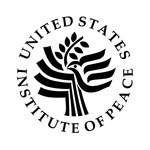Emerging Powers and the Responsibility to Protect
Ramesh Thakur
Tuesday, 01 Oct 2013 at 8:00 pm – Sun Room, Memorial Union
Ramesh Thakur, former Assistant Secretary-General of the United Nations, currently directs the Centre for Nuclear Non-proliferation and Disarmament at Australian National University. He has held academic positions in Australia, New Zealand and Canada; advised the Australian and New Zealand governments on arms control and international security issues; and served as UN Senior Adviser on Reforms as well Senior Vice Rector of the United Nations University in Tokyo. He was a principal author of the 2001 Responsibility to Protect report, which the UN later adopted as guiding principles for the prevention of genocide and crimes against humanity. Thakur is coeditor of the newly released Oxford Handbook of Modern Diplomacy, the author of more than thirty books, and writes regularly for the international press. Part of the World Affairs SeriesEducated in India and Canada, Ramesh Thakur was a professor of International Relations at the University of Otago in New Zealand and professor and head of the Peace Research Centre at the Australian National University. He was a Professor of Political Science at the University of Waterloo (2007–11), Distinguished Fellow of the Centre for International Governance Innovation (2007–10) and Foundation Director of the Balsillie School of International affairs in Waterloo, Ontario. He serves on the international advisory boards of institutes in Africa, Asia, Europe and North America.
His most recent books include:
The United Nations, Peace and Security: From Collective Security to the Responsibility to Protect, 2006
Global Governance and the UN: An Unfinished Journey, co-written with Thomas G. Weiss, 2010
The Responsibility to Protect: Norms, Laws and the Use of Force in International Politics, 2011
The People vs. the State: Reflections on UN Authority, US Power and the Responsibility to Protect, 2011
This event was supported by the U.S. Institute of Peace Public Education for Peacebuilding Support Initiative.
Cosponsored By:
- Political Science
- World Affairs
- Committee on Lectures (funded by Student Government)
Stay for the entire event, including the brief question-and-answer session that follows the formal presentation. Most events run 75 minutes.
Sign-ins are after the event concludes. For lectures in the Memorial Union, go to the information desk in the Main Lounge. In other academic buildings, look for signage outside the auditorium.
Lecture Etiquette
- Stay for the entire lecture and the brief audience Q&A. If a student needs to leave early, he or she should sit near the back and exit discreetly.
- Do not bring food or uncovered drinks into the lecture.
- Check with Lectures staff before taking photographs or recording any portion of the event. There are often restrictions. Cell phones, tablets and laptops may be used to take notes or for class assignments.
- Keep questions or comments brief and concise to allow as many as possible.





